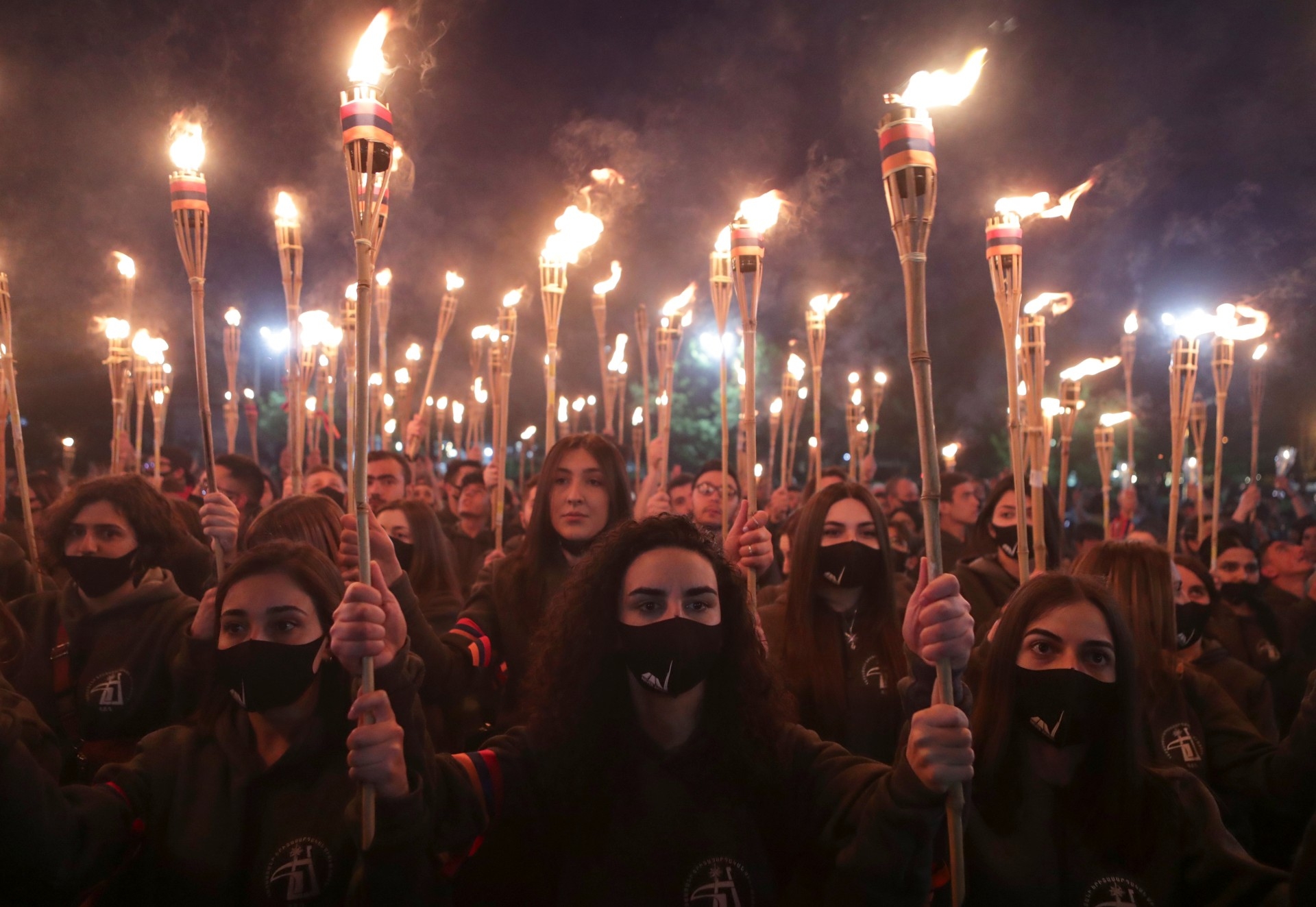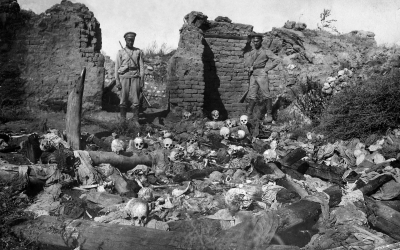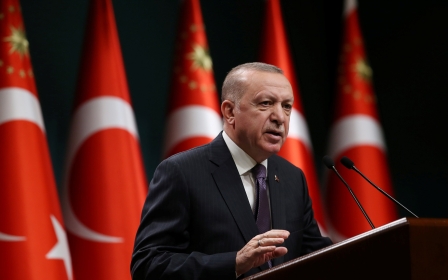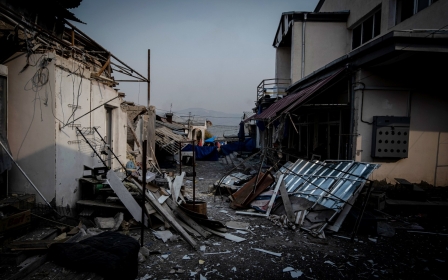Israel's cynical refusal to acknowledge the Armenian genocide

With its continued refusal to recognise Armenian genocide, Israel has reached a new level of cynicism, hypocrisy and double standards.
On 24 April, just as they do every year, the Armenian people marked - along with the rest of the world - the genocide that resulted in the death of between one and 1.5 million Christian Armenians at the hands of the Ottomans during the First World War.
The Armenians were massacred, sent on death marches to the Syrian desert and supjected to mass deportations. The genocide was systematic and well-orchestrated by the “Three Pashas” - Ismail Enver Pasha, Talaat Pasha and Ahmed Djemal Pasha - all members of the “Young Turks” movement and prominent ministers who served in the government of Sultan Mehmet V.
The shameful Israeli refusal to acknowledge the simple historical fact is very systematic and persistent, and has been shared by Israeli governments led by left-wing and right-wing parties
In addition to the killing of Armenians, the leaders of the Ottoman Empire ordered the murders of other Christian minorities, mainly Greeks and Assyrians.
Turkey acknowledges that atrocities took place against Armenians during the war, but it says the killings were not a part of a systematic campaign and do not amount to genocide.
New MEE newsletter: Jerusalem Dispatch
Sign up to get the latest insights and analysis on Israel-Palestine, alongside Turkey Unpacked and other MEE newsletters
Many countries, including most Western democracies, Jewish organisations and church leaders (including the pope) have recognised the Armenian genocide. Last week, US President Joe Biden followed them. He is the second US president to do so after Ronald Reagan in 1981.
Yet Israel is silent, or rather uses acrobatic language to dance around the issue. Its foreign ministry published a standard reaction, which appears as if it was drafted by a bot operated by an automated algorithm.
“The state of Israel recognises the tragedy and terrible suffering of the Armenian people.” That’s it. It was not a genocide, only “tragedy” and “suffering”.
The shameful Israeli refusal to acknowledge the simple historical fact is very systematic and persistent, and has been shared by Israeli governments led by left-wing and right-wing parties since the establishment of the state in 1948.
Israel’s chiefs of security and intelligence have also contributed to this disgraceful behaviour. They justified the policy by wrapping it with the magic yet false words of “national security interests”.
Hiding behind fear
But the simple truth is that lying behind the use of “national security” is fear. Israel fears the wrath of Turkey, which time and again has threatened to retaliate against any individual, let alone a government, that accepts that what happened 106 years ago was genocide.
Since a secret meeting in 1958 between Israeli Prime Minister David Ben Gurion and his Turkish counterpart Adnan Menderes, the two countries have upheld often clandestine relations. For Israel to have special ties with a Middle Eastern, majority-Muslim nation was a rarity.
Relations developed over the years into a strategic alliance, which at one point was joined by Iran, when it was led by the Shah. The triparty cooperation supported by the US included secret intelligence and military ties aimed against Arab countries, above all Syria and Egypt. What cemented the connection was the old dictum that the enemy of my enemies is my friend.
The Israeli-Turkish honeymoon came to end in 2010, when Recep Tayyip Erdogan, then prime minister, now president, solidified his power and drifted from pro-Western tendencies to Islamism and nationalism.
Under Erdogan, Turkey disconnected the military and intelligence ties with Israel, which at their zenith witnessed a very intimate and close collaboration between Mossad and its Turkish counterpart, the National Intelligence Organisation (MIT).
Yet in parallel, Israel benefited from the emergence of a new security interest. In the last decade, Muslim Azerbaijan became Israel’s best regional ally.
The trade-off between the two countries is well known. Israel has supplied advanced weapons - especially drones - and intelligence equipment to Baku, which in return allows the Israelis to use Azerbaijani soil as a launching pad for special operations against Iran.
Mossad operatives recruit and run agents from Azerbaijan to infiltrate the Islamic Republic, and military intelligence has special listening posts there.
One incident can illustrate these unique relations. It was reported that the Mossad agents that broke into Iran’s central nuclear archive and stole its content managed to escape with their treasure by crossing the border into Azerbaijan.
Another example is how Israel sold Baku drones and sent military advisors, playing a major role in Azebraijan’s victory over Armenian forces in Nagorno-Karabakh last year.
This constantly strengthening relationship also contributes to Israeli hesitancy to recognise the Armenian genocide. Azerbaijan has close cultural, political and ethnic links with Turkey, and similarly rejects the term.
Hope for change
Security interests are important ingredients forming Israeli national policy. But a decent security and foreign policy must be balanced and complimented also by moral considerations and adherence to international norms. This is how democracies formulate their international relations.
But Israel is playing a double game by claiming to belong to the group of countries adopting and adhering norms of western democracies.
This is even more evident if one bears in mind that Israel keeps reminding the world that it was founded following the biggest genocide ever: the Holocaust, in which six million Jews were murdered by German Nazis and their collaborators in World War Two.
Israel's refusal to recognize the Armenian genocide can be explained by its desire to monopolize the Holocaust
The truth, however, is that Israel manipulates the historical memory of the Holocaust to advance its political and security interests. Its refusal to recognise the Armenian genocide can also be explained by its desire to monopolize the Holocaust.
In other words, the Israeli hypocrisy manifests itself in its efforts to portray the Holocaust as the only event that deserves to be recognised as a genocide.
Yet many Israelis hope that if Prime Minister Benjamin Netanyahu is voted out and a new government led by opposition leader Yair Lapid is formed, Israel will reverse its policy and follow the footsteps of Biden in recognising the Armenian genocide.
Lapid told Middle East Eye that he would do his best to do so. “It’s our moral duty,” he said.
This article is available in French on Middle East Eye French edition.
Middle East Eye delivers independent and unrivalled coverage and analysis of the Middle East, North Africa and beyond. To learn more about republishing this content and the associated fees, please fill out this form. More about MEE can be found here.





